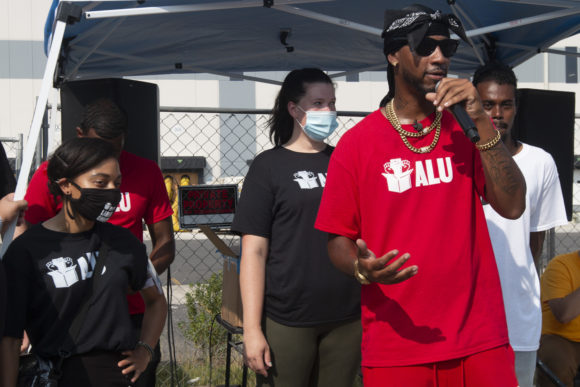I hate unions.
I love Amazon. I’ve made a bundle on its stock. Their delivery service was a lifesaver during the COVID pandemic.
Yet the story of Chris Smalls and the first union victory against Amazon Corporation at one warehouse, JFK 8 on Staten Island, excites me. It is a classic story of underdog triumphs against the Godzilla of American corporations.
Amazon had two union elections last week, Birmingham, Alabama and Staten Island, New York. Amazon easily crushed the corporate union types who spent lots of money and brought in professional organizers from New York City to wage their battle against big bad Amazon.
Their problem was they were outsiders who were all paid and believed in the “union movement.” Their problem was that Amazon’s Birmingham workers were not angry enough at the company to jeopardize their wages and benefits that were so much better than the other job alternatives they had.
Amazon bashed the union organizers in two straight elections in Birmingham. It wasn’t close.
The situation in Staten Island was totally different.
The union in Staten Island was not part of any national organization. It was started by a pissed-off former employee who got fired for complaining about the working conditions at the huge fulfillment warehouse
Amazon pays well. $18 per hour to start for relatively unskilled people. But they expect employees to work hard. They closely monitor productivity, how many packages they sort, how many items they pack, and did they show up on time. They have cameras and computers continually checking up on people.
There are a lot of hand and back injuries at fulfillment centers. Carpal tunnel is common. They would really like people to be replaced by robots, but robots are just not as productive as humans at this point.
Breaktimes are short, warehouses are enormous. All in all, it is not a real fun place to work for many folks. Chris Smalls was one of those dissatisfied workers.
Smalls is a single father, part-time rapper, and the kind of annoying guy Amazon hates, and they fired him when he started talking to other workers about his gripes and began discussing starting a union.
Mighty Amazon totally underestimated Mr. Smalls. Angry and unemployed, Smalls started a one-man campaign against the trillion-dollar company.

He hung out with a sign at the bus stop where many employees came and went. He employed social media to be noticed and started a GoFundMe campaign. He had barbeques near the warehouse where employees gathered and traded their gripes. Volunteers, including some lawyers who understood how labor elections worked, counseled him.
Amazon had no idea how to deal with this kind of guerrilla attack by somebody who knew the territory. They saw Smalls was starting to get traction so they hired ad agencies, lawyers, and union fighters from the outside. Mr. Smalls had more barbecues, started another GoFundMe round, and handed out a little free marijuana at get-togethers.
Amazon knew how to combat national unions, but had no plan for combating an African American, 32 years old, dedicated local guy named Smalls.
The irony of the story is that Jeff Bezos started Amazon in 1995 on a shoestring. He was born in poverty to an 18 year old mother. His father owned a tiny bike shop in Albuquerque. He retired this year to work on other ventures, especially going into space.
Howard Schultz, his counterpart at Starbucks, just came back to the company he built to deal with a similar kind of union challenge. Schultz, son of a New York City cab driver, failed as a quarterback at North Michigan University and went to Seattle in the mid-90s to build his fortune in the coffee shop business.
Amazon and Starbucks were models of American business success, and made their founders incredibly rich.
Maybe these companies have now lost their ability to deal with their growth. The changed labor climate today has found weaknesses in their approach toward their workers.
Is Chris Smalls the labor entrepreneur that Amazon and Starbucks cannot deal with? Is he a little bit like Bezos and Schultz were 35 years ago? We will find out in the next few years.
Question: Would you want to work for Amazon?

